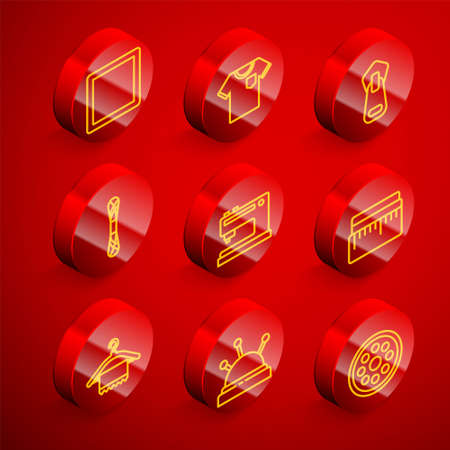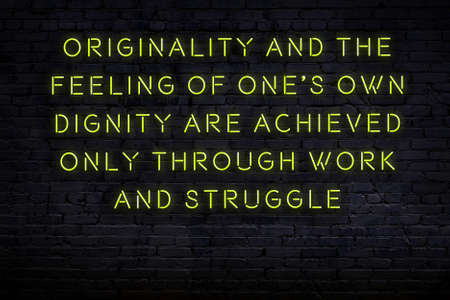Introduction: Star Signs in the British Workplace
Across the UK, astrology and star signs maintain a curious yet persistent presence within professional environments. While few would openly claim to base key business decisions on horoscopes, conversations about star signs and their traits frequently surface around office kettles and at Friday pub gatherings. This blend of scepticism and light-hearted interest is woven into British workplace culture, where referencing someones astrological sign can be both an icebreaker and a playful means of discussing personality quirks. British media, from newspapers to online platforms, regularly publishes horoscopes and features exploring how different signs approach work or interact with colleagues. In this context, astrology becomes less about fate and more about self-reflection, team bonding, and even gentle ribbing among staff. Understanding the role star signs play in shaping perceptions of work ethic and professional strengths or weaknesses offers a unique lens through which to view modern British working life.
Astrological Archetypes and British Work Ethos
In the United Kingdom, conversations about star signs are often more than just a bit of light-hearted banter at the pub or in the break room. Despite a generally pragmatic approach to life, many Britons still find amusement—and sometimes subtle guidance—in the supposed traits associated with their astrological signs. This cultural curiosity extends into workplace dynamics, where people occasionally attribute certain professional behaviours and work styles to their zodiac archetypes. Below is an exploration of how popular beliefs about star signs may influence work ethic, collaboration styles, and attitudes within UK office culture.
Star Sign Traits and Their Perceived Impact
The British working environment values punctuality, understated professionalism, teamwork, and a strong sense of fair play. However, within this framework, individuals often recognise differences in approach—sometimes jokingly linked to astrology. For example, Capricorns are admired for their diligence and organisational skills; Leos for their leadership and charisma; while Pisces may be seen as empathetic but occasionally distracted. This lens can sometimes provide an accessible vocabulary for discussing interpersonal challenges or team strengths in a light-hearted way.
Common Star Signs and Workplace Stereotypes
| Star Sign | Work Ethic | Collaboration Style | General Attitude |
|---|---|---|---|
| Aries | Driven, quick to act | Prefers leading projects | Energetic, sometimes impatient |
| Taurus | Dependable, methodical | Steady contributor | Practical, resistant to change |
| Gemini | Adaptable, multitasker | Loves brainstorming sessions | Sociable, can seem unfocused |
| Cancer | Diligent when motivated by purpose | Nurturing team player | Loyal, sensitive to criticism |
| Leo | Ambitious, seeks recognition | Natural leader in groups | Confident, needs appreciation |
| Virgo | Precise, detail-oriented | Takes charge of organisation tasks | Cautious, sometimes critical |
| Libra | Fair-minded, diplomatic worker | Mediates conflicts in teams | Avoids confrontation, values harmony |
| Scorpio | Intense focus on goals | Loyal but prefers autonomy | Persistent, can be secretive |
| Sagittarius | Optimistic, loves learning new things | Energises group discussions | Open-minded, dislikes routine tasks |
| Capricorn | Disciplined, goal-oriented worker | Takes responsibility readily | Sensible, can seem distant under stress |
The British Approach: Gentle Ribbing and Subtle Guidance?
Within UK offices—especially those with a relaxed or creative culture—it’s not unusual for colleagues to reference star sign stereotypes during team-building exercises or informal chats. This practice often serves as a means of gentle ribbing rather than serious assessment. Nevertheless, it can help teams reflect on diversity in working preferences and encourage more empathetic collaboration. While most professionals don’t let astrological labels override rational judgement or HR policies, there’s no denying that these archetypes offer a fun framework for discussing personality clashes or strengths over a cuppa.

3. Common Strengths Attributed to Each Star Sign
When examining the influence of star signs on British work ethos, it is worth exploring how each zodiac sign is perceived to shape professional strengths within the unique context of UK workplaces. While astrology may be met with a raised eyebrow in many offices from Edinburgh to Exeter, conversations about “what’s your sign?” still emerge over tea breaks or during Friday pub quizzes. Here’s a distinctly British take on the positive traits often linked to each sign:
Aries (21 March–19 April)
The archetypal go-getter, Aries are seen as the offices natural leaders—unafraid to volunteer for projects or break new ground. Their penchant for “just cracking on” resonates with the British admiration for initiative and resilience, reminiscent of that “stiff upper lip” attitude in tackling even the most tedious spreadsheets.
Taurus (20 April–20 May)
Taurians are renowned for reliability and practicality, much like the colleague who always brings the best homemade cake for meetings. Their steady approach mirrors the British value of consistency—think of a well-brewed cup of tea: reliable, comforting, and never rushed.
Gemini (21 May–20 June)
Geminis light up offices with their wit and adaptability. They’re the ones effortlessly navigating office banter or spearheading a brainstorming session. In a workplace where small talk about the weather is an art form, Geminis excel at keeping communication flowing and spirits high.
Cancer (21 June–22 July)
Cancers are considered nurturing team players—the “mum friend” who remembers birthdays and checks in after a tough client call. Their empathetic nature aligns with the British preference for harmonious work environments and supporting colleagues through thick and thin.
Leo (23 July–22 August)
Leos bring warmth and enthusiasm, often taking centre stage at presentations or away days. Their flair is balanced by a generosity of spirit; they’re just as likely to champion others’ successes as their own—a trait celebrated in Britain’s collaborative office cultures.
Virgo (23 August–22 September)
Meticulous Virgos are lauded for attention to detail and diligence—think of them as the ones ensuring every comma is correct before a report goes out. This conscientiousness fits neatly with Britain’s reputation for thoroughness, whether in engineering specs or government paperwork.
Libra (23 September–22 October)
Librans are diplomatic and fair-minded, adept at smoothing over disagreements during those sometimes awkward all-hands meetings. Their sense of balance embodies the British desire for fairness—no one likes queue-jumping or office politics here.
Scorpio (23 October–21 November)
Scorpios possess determination and strategic thinking; they’re often behind-the-scenes powerhouses who keep projects moving forward. Their intensity echoes Britain’s appreciation for quiet perseverance rather than brash self-promotion.
Sagittarius (22 November–21 December)
Sagittarians infuse workplaces with optimism and curiosity, always suggesting fresh approaches or volunteering for international assignments. Their adventurous spirit pairs well with an increasingly globalised UK workforce keen to embrace change.
Capricorn (22 December–19 January)
Capricorns epitomise discipline and ambition—they’re first in, last out, earning nods of respect from colleagues. The British value placed on “getting stuck in” finds its match in Capricorn’s relentless work ethic and long-term vision.
Aquarius (20 January–18 February)
Aquarians are innovative thinkers, forever suggesting new tech solutions or pushing for more sustainable office practices. Their forward-thinking attitude gels with Britain’s growing focus on digital transformation and eco-consciousness at work.
Pisces (19 February–20 March)
Pisceans bring creativity and intuition, excelling in roles requiring empathy—whether designing campaigns or supporting wellbeing initiatives. Their gentle approach reflects the softer side of British professionalism: polite, thoughtful, and always ready with a kind word.
The Local Spin
While not everyone takes star signs seriously, weaving these archetypes into workplace culture offers both entertainment and insight—sparking conversations that can lighten up even the greyest Monday morning in Manchester or a rain-soaked afternoon in Cardiff.
4. Typical Professional Weaknesses and Stereotypes
It is no secret that in the British workplace, star signs are sometimes a source of banter and gentle ribbing among colleagues. While not everyone takes astrology seriously, certain stereotypes have taken root in office culture, often blending with classic British wit and local character quirks. Below is an analysis of how each star sign might be perceived when it comes to professional weaknesses, with a nod to well-loved UK stereotypes and a touch of local humour.
Commonly Attributed Weaknesses by Star Sign
| Star Sign | Perceived Weakness | British Workplace Stereotype |
|---|---|---|
| Aries | Impatience, tendency to rush tasks | The one who skips the tea break for “efficiency,” only to miss key gossip or instructions |
| Taurus | Stubbornness, resistance to change | The steadfast colleague who wont budge from their favourite desk or biscuit brand |
| Gemini | Easily distracted, can appear superficial | Chatty Cathy in meetings, likely to start a conversation about the weather mid-project update |
| Cancer | Overly sensitive, may take feedback personally | Known for bringing in homemade cakes but sulking if nobody notices their new mug |
| Leo | Attention-seeking, struggles with teamwork | Loves leading presentations (and after-work pub quizzes), less keen on sharing credit |
| Virgo | Perfectionist, can be overly critical | The one who colour-codes spreadsheets and sighs dramatically at minor typos in group emails |
| Libra | Indecisive, avoids confrontation | Keen on fairness—will spend hours mediating over who gets the last custard cream instead of making a decision |
| Scorpio | Secretive, prone to holding grudges | The mysterious one whos always “just nipping out” when office politics heat up, but knows all the secrets anyway |
| Sagittarius | Easily bored, commitment issues | Loves away days and training courses—less thrilled about weekly status meetings or paperwork |
| Capricorn | Workaholic tendencies, inflexible routines | The first in and last out; occasionally forgets its Friday drinks time because theyre finishing “just one more thing” |
| Aquarius | Aloofness, rebellious streaks against rules they dislike | The innovator who suggests remote working from the park—confuses HR with unconventional ideas about “team bonding” |
| Pisces | Prone to daydreaming, can lack assertiveness | The creative spirit whose mind wanders during Monday morning briefings—always has a poetic excuse for missing deadlines |
Navigating Stereotypes with British Humour
Of course, these stereotypes are often shared tongue-in-cheek around British offices. The ability to poke fun at oneself and others is a valued trait in UK work culture. Ultimately, whether you identify with your star sign’s supposed weaknesses or not, embracing these quirks with good humour can foster camaraderie—and perhaps even spark some friendly debate over a cuppa.
5. Astrology as a Lens for Team Dynamics
Within the context of British workplaces, astrology often acts as a subtle but pervasive influence on team dynamics. While not everyone takes star signs seriously, there is a cultural tendency to use them as an informal lens for understanding colleagues’ personalities and work styles. In open-plan offices or during after-work drinks, it is not uncommon for team members to share their birth charts or speculate about why “Geminis” dominate sales or why “Virgos” excel at project management. This casual banter can serve as an icebreaker, helping foster camaraderie and mutual curiosity, especially in diverse teams where traditional small talk might falter.
From an engineering perspective, viewing astrology as a soft tool in workplace interactions invites both scepticism and intrigue. On one hand, attributing teamwork issues to Mercury retrograde rather than poor communication could be seen as avoiding hard truths. On the other, light-hearted astrological references may offer a non-confrontational way to discuss differences or diffuse tensions. For instance, describing someone’s meticulousness as “classic Capricorn behaviour” can soften feedback and make it more palatable within the famously indirect British communication style.
The influence of star sign beliefs on team-building activities has become more pronounced with the rise of workplace wellness programmes and personality workshops. Some HR departments in the UK even incorporate astrological themes into icebreakers or team away-days—not necessarily out of genuine belief, but because these frameworks prompt reflection on personal strengths and group weaknesses. There’s a certain charm in seeing British reserve give way to spirited debates over which zodiac sign makes the best manager or whether Scorpios really are too intense for customer service roles.
Despite its playful veneer, astrology’s role in shaping office banter should not be underestimated. It provides an accessible language for discussing personal traits without resorting to formal psychometric testing. However, engineering managers and team leads must remain cautious: while zodiac banter can build bridges, it risks reinforcing stereotypes or excluding those who find such discussions trivial or unscientific.
In summary, astrology functions less as a serious diagnostic tool and more as a social lubricant within British professional life. Its true value lies in how it facilitates interpersonal understanding—sometimes by highlighting differences, sometimes by uniting teams through shared laughter at horoscopes gone awry. As with all tools in the modern workplace toolkit, its effectiveness depends on context, intent, and a healthy dose of British humour.
6. Skepticism and Satire: The British Take on Workplace Astrology
The British approach to astrology, particularly in the context of work ethos and professional traits, is often characterised by a healthy dose of scepticism and a penchant for satire. While horoscopes remain a staple in popular media—nestled between agony aunt columns and the crossword puzzle—the average Brit tends to treat astrological claims with a wry smile rather than blind faith.
Astrology as Entertainment, Not Doctrine
For many in the UK, star signs are more a topic for light-hearted banter over tea breaks than a serious tool for assessing workplace strengths or weaknesses. It’s not uncommon to hear colleagues quipping about Mercury in retrograde when technology misbehaves, or blaming a missed deadline on their “Piscean tendencies,” all with an unmistakable tongue-in-cheek tone. This cultural tendency to poke fun at astrological stereotypes ensures that such beliefs rarely take precedence over more evidence-based HR practices or professional development strategies.
Media Parody and Social Commentary
The British media has long embraced the comedic potential of astrology. From satirical sketches on shows like “Have I Got News For You” to witty horoscope columns that lampoon office life, there’s an ongoing tradition of using astrology as a lens for gentle mockery. These parodies often reflect broader social attitudes: while there’s some curiosity about what the stars might say, there’s even greater pleasure in subverting these predictions and highlighting their vagueness or irrelevance to real-world challenges.
Real-World Implications: A Pragmatic Workforce
This sceptical stance translates into practical outcomes. Few British employers would seriously consider star sign compatibility when assembling teams or promoting staff. Instead, there’s an emphasis on meritocracy, experience, and adaptability—qualities less likely to be found in one’s birth chart than in a robust CV. However, the willingness to laugh at oneself and not take such matters too seriously is itself a valuable trait in the often stressful world of work.
In summary, while star signs offer occasional amusement and conversational fodder in British workplaces, they rarely inform substantive decisions. The prevailing attitude is one of good-natured scepticism—a hallmark of British culture that helps maintain perspective amid the ever-changing demands of professional life.


